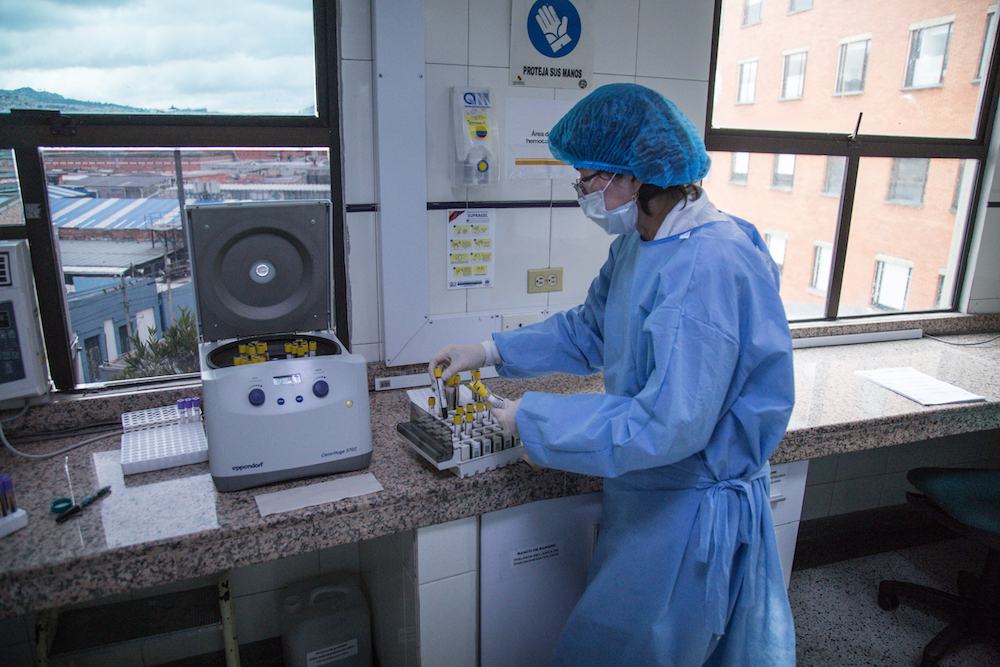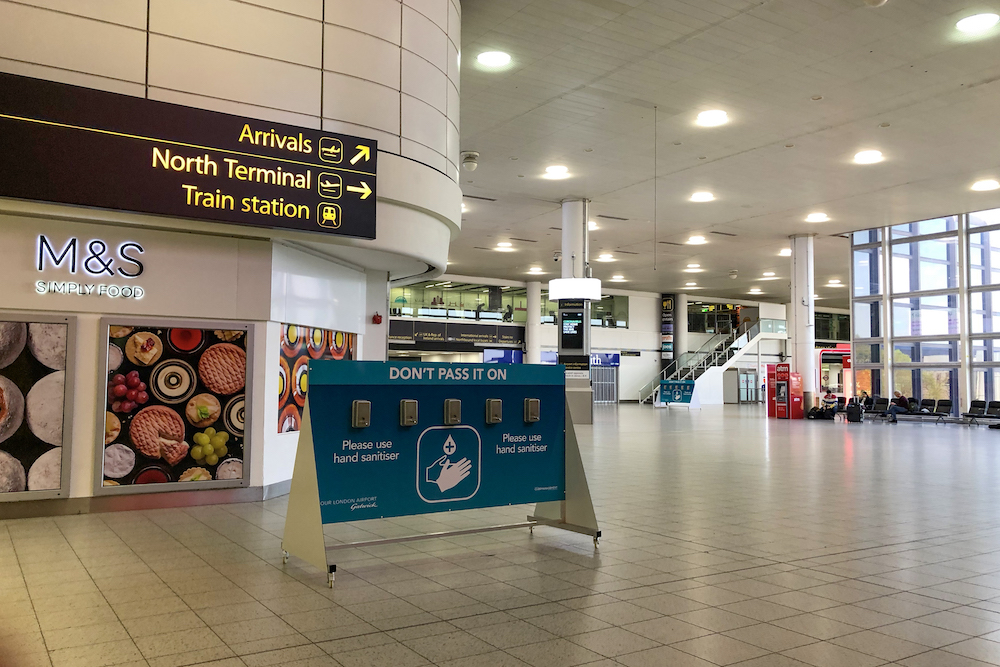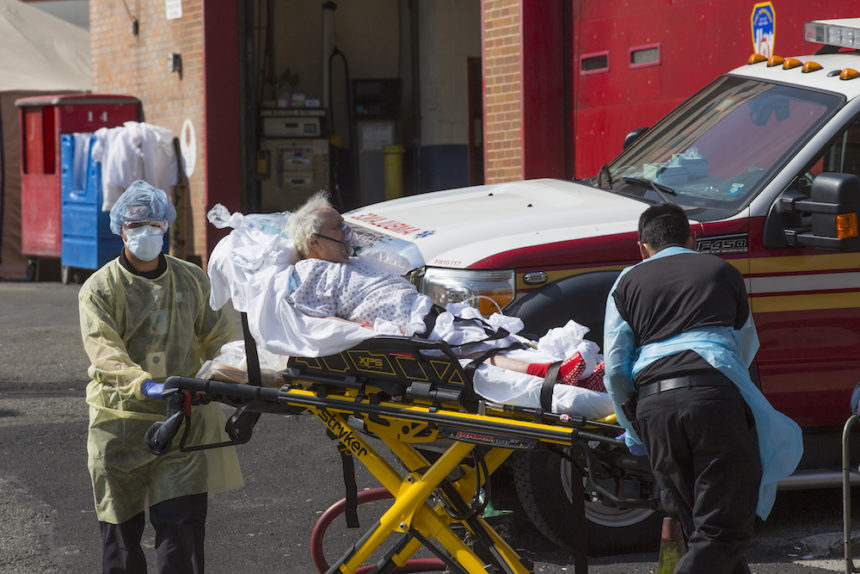We’re not sure where you are as you read this, but here in New York City it is overcast for the second day in a row; the sky is gray, the air is wet and cold, and a storm is coming in. It’s hubris to imagine Mother Nature reflecting our feelings, but the gloomy conditions outside couldn’t more accurately reflect how many of us are feeling inside. So, to help brighten up the day: While today’s newsletter shares some of the latest grim challenges we face, it also includes a section devoted to love.
Today’s Coronavirus Briefing is 1,258 words and will take you five minutes to read.
Just the hits
- Deaths in New York and New Jersey spiked to new highs Wednesday for a second day in a row. Few places have suffered as much as central Queens, where a seven-square-mile patch of densely populated immigrant enclaves recorded more than 7,000 cases.
- Wuhan’s 76-day lockdown ended Wednesday; today, Suifenhe, a city along China’s northern border with Russia, began its lockdown.
- The total number of deaths in Spain surpassed 15,000, with 5,756 new cases reported over the past 24 hours.
- 6.6 million Americans applied for unemployment benefits last week, bringing the total to more than 17 million filed in the past four weeks.
The Takeaway:
All of that is bad, but in the spirit of keeping the glass half-full, there will come a time when we get to sit next to one another again, and touch, and laugh, and compare quarantine stories as crazy, terrible times gone by.

TMI
Too Much Information means something very different to GPs in the U.K. In other parts of the world, there’s progress with testing, new specialists stepping in to help, and rainbows.
- In McKnight’s Senior Living, Lois Bowers reports that the broad-based testing conducted among the 80 residents of Ida Culver House Ravenna independent living and assisted living community in Seattle could prove instrumental in preventing outbreaks in independent living and assisted living communities.
- In the U.K., GP-led hot sites, also known as hot hubs, are providing a place to see patients with coronavirus symptoms face to face. But how do they work and how are practices protecting patients and staff? Luke Haynes, for GP, investigates.
- Elsewhere in GP, Nick Bostock reported on doctors who are potentially missing vital information due to a deluge of COVID-19 guidance pushing email inboxes beyond capacity. Part of the overload is due to emails containing large attachments and information being sent not only by email but also through WhatsApp groups and other channels.
- Jody Charnow of Renal & Urology News writes that, while urologists aren’t usually called upon to contain infectious disease epidemics, they’re doing their part to contain the spread of the virus by developing safe strategies when seeing patients, and by managing the surge as hospitals grow more and more overwhelmed.
- Horticulture Week shares that a florainbow, aka a rainbow of flowering bedding plants, was recreated by Milestone Garden Centre in Melrose, Scotland, and placed in the grounds of nearby Borders General Hospital. “We invite all the keyworkers to help themselves to a little piece of this rainbow of hope to bring a smile to such a hard-working team we have in our NHS,” said Ross Allan, Milestone’s owner. The florainbow will remain for a few days before being given to the key workers at the hospital.
The Takeaway:
It’s understandable to feel like the weeks are interminable, but in fact monumental, life-saving advancements are being made daily in the world of medicine. Flowers, too, can help in the healing process.

You’re grounded
The travel industry — airlines, hotels, cruises, booking sites — are at a standstill. The opposite of their purpose.
- Ellie Kahn in Conference & Incentive Travel U.K. investigates the effects of an indefinite travel ban on businesses.
- Germany’s largest airline, Lufthansa, permanently retires 29 jets, assessing it will take months until the global travel restrictions are completely lifted, and years until the worldwide demand for air travel returns to pre-crisis levels.
- National Geographic takes a deep dive into how hard the coronavirus will hit the travel industry. “The impact on travel is six or seven times greater than the 9/11 attacks,” says Roger Dow, president and CEO of the U.S. Travel Association.
- Tripadvisor, which had planned to launch a rebrand this spring, has instead created a match-for-action initiative that triggers donations (up to $150,000) for impacted hourly and front-line restaurant workers every time someone shares their favorite restaurant on social media.
The Takeaway:
The word “indefinite” has everyone on tenterhooks. But after “unprecedented,” it might be our days’ most germane term.

Tech gaffes and PSAs
Remember fax machines? That’s what video conferences sound like when nobody mutes their screen.
- Car crash webinars? Conference & Incentive Travel’s Ellie Kahn has stories. Read ‘em for a chuckle, and then click over to this checklist from Dan Walker of Ashfield Meetings & Events to ensure your video calls run smoothly.
- Sophie Morris, managing director of event agency Worldspan, spoke to Mark Williams in Conference & Incentive Travel about the impact coronavirus has had on the agency and how it’s applying the firm’s platinum-level Investors In People accreditation to managing its people during this crisis.
- “This isn’t going anywhere if you go everywhere,” states Providence healthcare’s new PSA. Campaign U.S. highlights the 60-second black-and-white spot, which was shot by caregivers inside their hospitals, along with two photojournalists, set to the song “Stronger,” by Alex Ebert.
- Speaking of webinars, video meeting platform Zoom surged from 10 million users in December, to 200 million in March. On the downside, it is besieged by security issues.
The Takeaway:
We’re all trying to work out the kinks in this forced, WFH experiment. And while, for the most part, production has stopped, creative agencies are finding ways to create content that supports our new universal cause — flattening the curve.

Bells will toll
Against all odds and despite all distances, love continues to bloom.
- Katelyn and Joshua were supposed to get married in June, in Long Beach, California. Instead, they moved the ceremony to the parking lot of the Oakmont Senior Living community in Chino Hills, so the bride’s grandmother could watch the service from her balcony.
- The same day the New York City Marriage Bureau shuttered, Reilly and Amanda tied the knot in a ceremony held on a street in New York City’s Washington Heights. A friend and licensed marriage officiant leaned out of his fourth-floor window to lead the ceremony.
- And this isn’t a wedding, but it could be the start of a great love story: When Jeremy saw Tori dancing on the rooftop across from his apartment in Brooklyn, NY, he jotted down his phone number on a piece of paper, attached it to a drone which flew it over to her, and they began corresponding. He then worked out a way for them to have a dinner date “together” by working out a way to put a table with food and wine on her building’s roof while he brought a table onto his balcony. Then, he hopped inside a giant plastic bubble and walked up to her door carrying flowers and hand sanitizer. (Which he couldn’t actually give her.)
The Takeaway
Despite everything, people are still making space for some form of love and commitment.
Zoom isn’t just a noun
It’s an adjective, verb, and description of amorous proficiency.
- Zoom by Fat Larry’s Band
- Who’s Zoomin’ Who by Aretha Franklin
- No One Does It Better by Salt-N-Pepa
See you Friday.







